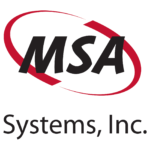Warehouse management systems, normally abbreviated as WMS are best depicted as the operating processes and superior technology that optimize all functions of warehousing. These functions usually begin with receipts from merchants and conclude with shipments to clienteles, and include all movements of inventory and flow of information in between.
Basically, successful warehouse management systems solutions are designed for merging peripheral equipment, and computer hardware and software with advanced operating practices for capital equipment, inventory, space, and labor management in distribution centers and warehouses. Implementation of WMS enables a firm to boost its competitive advantage by lowering labor costs, increasing inventory accuracy, improving customer services, and improving responsiveness and flexibility.
Ways that warehouse management systems benefits a company
Faster Inventory Turns
WMS can lower lead times by restricting movement of inventory and improving on the accurateness of inventory records, thus supporting a just-in-time environment. Consequently, the desire for safety stock is lowered, which increases working capital utilization and inventory turnover.
Enhanced Customer Service
Through streamlining procedures from order all the way down to delivery, firms can more precisely determine realistic delivery dates and product availability. A Warehouse Management System can automatically recognize and discharge backordered inventory, as well as reduce returns brought about by increased shipment accuracy. This way the company will be able to increase sales by minimizing missed deliveries, short ships, and shipping errors, thereby increasing customer satisfaction.
Inventory Accuracy
A WMS will in a significant ensure that you provide the customers with what they need and when they need them. System driven programs accurately monitor stock levels and can also be in charge of placing timely orders, which ensures the never ending availability of stock to the clients. An inventory that you can depend on infers that the organization can minimize inventory levels to its lowest and consequently realize the benefit of lowered cost of operation. In certain organizations, these costs can be minimized by up to 12%.
Maximizes the Use of Facilities
As the entity grows, it should be able to manage huge amounts of inventory throughout. This does not necessarily infer going to the greater levels of bringing new warehousing on stream. Warehouse Management Systems can take charge of operations that are optimized to realize the maximum use of amenities. The power to manage inventories more precisely translates into better utilization of existing amenities. Automated routines for stock picking and rotation also infer there is a reduced requirement for space, resulting in a more effective use of existing amenities.
It Minimizes Wear and Tear
man-up trucks, pallet jacks, and forklift trucks among other material handling machinery face incredible wear and tear. Implementing a WMS offers benefits such as:
Consolidated activity like zero bin cycle counts and wave order picking.
Managing and facilitating pickup and distribution, also called drop points.
Efficient activity routing throughout the warehouse
Associating equipment to appropriate work and to particular parts of the warehouse
Reducing time used to locate products because of accurate inventory.
Increased productivity
Most distributors that use WMS have realized that modern warehouse management enables the already present warehouse personnel to perform more work in a short time. In addition, the system offers them better control of inventory allowing them to stock more of what is in demand and less of what is not.
This way they get to earn more of every dollar spent on labor, and get high profits on every inch of the warehouse space in use. New employees are much easier to train, while existing employees do not want to revert once they have used a WMS.
Effective management control
Instantaneous or on-time reporting from a WMS that is well executed can give advance warning of stock control problems. Generally, productivity reports may be used to give intelligence based warning system that reduces the odds of costly mistakes happening. This way, effective management control offers opportunities to improve customer services.
Backordered inventory can be automatically released, picked, and supplied according to a clientele’s exact requirements. An ideal WMS will also give a rigid support for any stock control or distribution operation. The rigid support can then be utilized to drive more process advancements in regions once believed would be cost ineffective to address.
Reduce dependency on personnel
Employing a comprehensive Warehouse Management System enables standardization of picking methods, inventory locations, and inventory movements. This standardization helps reduce dependence on informal practices, leading to reduced costs of training and lower rates of error.
Reduction of inventory paperwork
Employing a modern WMS can also significantly minimize the paperwork historically linked to warehouse operations, and ensure an accurate and timely flow of information and inventory. Receiving reports, packing lists, move tickets, and pick tickets among others, which are usually kept in hard copies, can be electronically maintained.
Supervisors and operator benefit
Supervisors, with the help of a WMS will be able to produce operators’ reports and use it to employ productivity based remuneration plans or to dismiss unproductive employees. For warehouses that must deal with union issues, these reports can assist the firm greatly. Thanks to WMS, effective monitoring of warehouse activities is now possible as it offers an inclusive set of web-enabled reports indicating all the warehouse activities and their impact on inventory management. It also helps detect blockage in operations that can boost the warehouse overall throughput.
One the other hand, WMS offers a graphic user interface where generally, the operator has to simply scan the barcodes. Therefore, the WMS simplifies the operator’s job and fastens the process of data input, thus amplifying the operator’s overall efficiency. Some programs such as Puling and Locating are specifically designed to operate on hand-held radio frequency terminals. The programs simplify the task of locators and pickers as they are painless to carry.
To schedule a consultation to see if your warehouse can benefit from a Warehouse Management System, contact MSA Systems today.



2 Responses
Warehouse management systems are essential part of most of the business and people are now spending big in acquiring good warehouse management systems because they know it will save them a lot of time and money.
Wow! this is really a new and innovative way of managing warehouses effectively. IO really liked this system that you have shared with us in this article. It is really very effective and has a lot of advantages over the conventional ways of managing warehouses. Thank you for sharing the information on this warehouse system with us in this article.